Information flows have shifted along with technology and culture, and more news and data and opinions are generated near the base of the social hierarchy and then disseminate horizontally. This is a profound threat to a class who maintains its power (and income) through the control of information and stifling of narratives. This is proving to be the most consequential meta-issue facing our society, and the trendline seems fairly clear. The professional managerial class narratives are increasingly embattled, and its members ignored. When you ask people to deny the facts they see with their own eyes and the developments occurring in their own lives you lose credibility. This group’s choice is clear: use more coercion and violence to stamp out disapproved information… or continue to weaken.
We live in a unique society, historically-speaking. We rely on long and tenuous supply chains for nearly everything we use and consume. Our communities are weaker than ever before, but that has come with an increased ability to travel and trade and communicate. Our knowledge of the world largely comes from experts and professionals. Researchers tell us their conclusions, and we listen. Journalists opine, and we read their assumptions and biases, packaged as reporting. Celebrities (who are usually professional entertainers or businesspeople and are sometimes a new and growing human phenomenon-the marketed personality) exist as sources of uninformed opinions and as focuses for parasocial relationships, taking the places of friends and neighbors we used to interact with every day.
Asking Questions
There is a model for world knowledge dissemination in this paradigm: information is gathered by the big institutions, processed, reframed and repackaged, and then disseminated to the peasantry, to keep them quiescent and to satisfy a kind of abstract sense that democracy demands an informed citizen body. Of course, the information that is offered is highly circumscribed and distorted. Certain speculations are completely out of bounds in this information ecosystem. Do public school teachers’ unions stifle test scores and smuggle tens of millions of dollars to political patrons? Do Jewish people tend to contribute to radical social disruptions and the fraying of traditional bonds in many Western societies? Do the COVID RNA therapies entail novel and dramatically underestimated risks for patients? Is the phenomenon of “trans kids” linked to a new kind of social media addiction, and does it interact with pathological fragility and profound mental health challenges? Are African Americans less intelligent on average, and could this have implications for employment and education and promotion statistics? Does DEI make organizations more cumbersome and incompetent? Is gun ownership a meaningful factor for public safety? Have federal agencies been pushing radical notions of gender and sexuality through schools and nonprofits? Do the illegal immigrants in your city make life significantly more unsafe? Are women more psychologically fragile? Does intensive social media use seem to cause psychological symptoms among teen girls? Is our medical system full of perverse incentives and profit motives that push large organizations seeking to keep Americans chronically ill? Is the EPA especially financially damaging to poor citizens? And so on.
I’ve interspersed controversial claims into my examples, trying to form a mix of inflammatory claims with conventional public attitudes. See if you can decipher which is which. These are all ‘yes/no’ questions (although the definition of certain terms and descriptors can be subjective or variable). I’m sure that I’m wrong concerning some, or even most, of my beliefs on these subjects. After all, I haven’t studied them at length, and even if I had information can change and sources proven unreliable. I don’t know the answers… but neither do you. No one does, because they’re off-limits entirely. The point is that these aren’t even questions which are allowed to be asked, within the traditional information distribution complex (IDC). We all act as if we know the answers to these questions (even though we don’t) and in each case the working answer which we’re taught to parrot is exactly the answer that the regime has determined is most convenient for the execution of its policies and the celebration of its values. The placement of these kinds of questions in the ‘out of bounds’ category was made in the name of decency or tolerance or politeness or science or credentials but these are all covers. People won’t even discuss these things in private, and people who’ve been educated and credentialed have learned, as part of that process, which questions are acceptable to broach, and which opinions are acceptable to have. As time has gone on those questions have become ever more distant from everyday reality, and those opinions more distinct from the mainstream.
NONE of these questions are easy to discuss, or even mention, in polite company. The answers to these questions (and a thousand more) have been essentially predetermined by the powerful in our society. The answers have been handed to us, and the information distribution complex has been instructed (using various mechanisms and levers) to avoid mentioning them at all. Observe the phenomenon which results if you introduce one of these questions (as a question) into a tangentially related discussion. You’ll be treated as a pariah, or at least a kind of mild social threat, by a group of people who also don’t know the answers to these questions, but who feel secure in their indignation because they have a large and powerful apparatus at their backs. Yet, unless the apparatus is willing to ask and answer these questions it cannot find the answers either. Indignation and a feeling of what should be correct are no certain guides to objectivity. They’re only useful in describing prejudices, not reality.
Unfortunately, once a system of information control is erected the incentive is to use it, and not sparingly. At a certain point, after the IDC was assembled and began producing its pre-arranged narratives, it began to be used to cover up federal waste and sweetheart contracting deals between governments and migrant aid organizations (which sprang up like toadstools after 2020) and the money flowing into pediatric gender medicine and the effects of bail reform and a dozen other urgent public policy developments. None of these fast-emerging trends were allowed to be reported or discussed. For years they were not.
News Events
Now apply some of these prejudices and calculated blind spots to news events and to questions about our hyperactively adapting culture. If you add a heavy dose of partisan bias and corporate profit-seeking and the public relationships sway of the powerful you have our legacy media. THAT was the approved avenue for facts in our society. Peasants are supposed to watch the news and believe what journalists say. If journalists don’t debate a topic (are trans males in prisons an especial danger to female prisoners when housed together? are public school teachers sometimes trying to change attitudes toward sexuality and gender identity in their classrooms? are partners of legislators and agency heads getting rich off the migrant crisis? are immigrants a public safety threat in your nation?), and if no representatives of certain opinions are broadcast, then that means that the opinion is invalid, ridiculous, not worth discussing. The media doesn’t tell you what’s true. Their remit is more fundamental than that. They tell you what’s okay to wonder about, and to debate. By controlling information, on many issues, they effectively control thought.
The people will believe what the media tells them they believe. - George Orwell
Keep in mind: I don’t know the answers to any of those questions above. I’m intensely suspicious of people who want to convince me that they shouldn’t be asked, however, and when I find certain evidence of political and financial incentives connected to a status quo which involves recent progressive policy changes, my suspicion turns to awareness. My awareness compels me to communicate with others. We now have the technology for that.
The effect of the mass media is not to elicit belief but to maintain the apparatus of addiction.
-Christopher Lasch
Shortly, the public will be unable to reason or think for themselves. They'll only be able to parrot the information they've been given on the previous night's news.
-Zbigniew Brzezinski
What happens when the barriers established by legacy media so obviously run afoul of what we seem to be seeing in our own lives? What happens when the range of acceptable questions and opinions narrows to a point which is so distant from reality that the entire exercise feels surreal?
This new class of bureaucrats pursued a woke agenda as if their jobs depended on it, because they did. If you hire people to keep watch for a particular type of problem, they're going to find it, because otherwise there's no justification for their existence. But these bureaucrats also represented a second and possibly even greater danger. Many were involved in hiring, and when possible they tried to ensure their employers hired only people who shared their political beliefs. The most egregious cases were the new ‘DEI statements’ that some universities started to require from faculty candidates, proving their commitment to wokeness. Some universities used these statements as the initial filter and only even considered candidates who scored high enough on them. You're not hiring Einstein that way; imagine what you get instead.
At the point of failure, we need to step away from the information distribution complex and start speaking to actual experts (military officers, scientists, police, doctors, border patrol, nurses) in an interactive and unmediated way. These might not be credentialed, but credentials have proven to be markers of ideological bias and intellectual mediocrity in many cases. They’ve also been certain markers of cowardice, held by people too frightened to dissent when absurdities arose. Instead we must find people with useful educations, deep experience, curiosity and logical acuity, and courage. They are everywhere, but in the old system they would’ve remainded voiceless. This is by design.
We must create a network of distributed knowledge, which profuses organically from a million lateral nodes, rather than flowing down through the power structure. This is an information apparatus which is much more difficult to control, and so it is a mortal enemy for policymakers who see themselves as ‘the elect’ (as Thomas Sowell calls them): the managerial priesthood appointed by academic institutions, endowed with a special degree of wisdom and given license to shape policies and administer programs for the peasants.
“Electness discourages genuine curiosity.” - John McWhorter
In a sense, the defining feature of modern academic educations and professional life is the inculcation of the values of expertise and the discouragement of asking the ‘wrong’ questions. If the answers to these questions were settled then discussing them would be harmless. Debating them would tend to accumulate wins for the progressives and the managers of the status quo. More information flow would strengthen their position, as time wore on. No coercion or suppression would be necessary. Instead, we see the opposite. The discourse involves ‘misinformation,’ and there is certainly a lot of bad information out there, but the new avenues of information distribution have made us aware of hundreds of events and trends which are actually real, that the professional managerial class doesn’t want us to know about. That’s not misinformation. It’s a loss of narrative control.
Case Studies
Keep in mind, as you read these stories, what the socially desirable beliefs and enforced prejudices of the elect would offer about these events. Could their ideologically framed descriptions of these things be anything but blindly dismissive, and ridiculous? Is their framing closer to reality? Or is it simply advantageous for their agendas, and their personal advantage?
Woman receives a two-day prison sentence for insulting a rapist who took part in a group sexual assault on a 15 year-old girl; the rapist himself and seven of his fellow perpetrators get no time
A 100,000 illegal immigrants have caused a crisis in NYC – taking over facilities paid for by New Yorkers and pushing them to the back of the line..
Another week, another man who says he’s a woman is jailed for child sexual abuse offences in the UK.
DEI Pushes Untrue Caste Narratives
CDC Covered Up COVID Vaccine Myocarditis Risk, Show Emails And Reports
Over the last week, extensive proofs show USAID was not only blowing through billions of taxpayer dollars on projects no one asked for or heard of, but was also using those projects to directly harm us.
…the industrial-scale rape of poor and working-class girls…covered up because the authorities were terrified of being called racist’
Musa al-Gharbi, a sociologist and author of “We Have Never Been Woke,” has pointed out that white college graduates are significantly more likely than Black or Hispanic respondents to a Cato Institute poll to brand statements such as “America is the land of opportunity” as offensive.
What do all the stories above have in common? They all relate to public policy (mostly to issues which have seen a surfeit of activist attention over the past decade). They all contain narrative elements which are considered to be unappealing and were, until recently, virtually unpublishable. They’re all pieces of information which flow from the personal findings and experiences of individuals: people on X, citizen journalists, law enforcement officers, doctors, and maverick scientists. They originate outside the system and they undermine its claims and prerogatives. The system reacts with deplatforming, reputation destruction, social pressure, and ostracism-sometimes with administrative (or, in many countries, criminal) penalties.
The ongoing collapse of the left across the world can be understood as a structure for decision-making and agenda forwarding choosing to use its information control and its coercive mechanisms to support bad policies, and then slowly being exposed. This exposure is the dissemination of organically-transmitted information. It is the interlinked realization of millions of people, sharing their dissatisfaction and their doubts. It is the greatest threat to the PMC status quo which now exists.
When people see these kinds of things happening their communities, and they seem to be on the rise or unaddressed, and the message from the information distribution complex is “don’t believe your lying eyes,” what will be the ideological result? How could this affect the IDC, other than to erode its credibility and to further isolate the people who continue to hold faith with it? The information system has locked itself into a rigid stance by insisting on its religious precepts being true and by denying any contradictory evidence or views. That can easily work when (1) you have a monopoly on information transmission or (2) your precepts don’t fall apart when confronted by apparent reality.
Both of these conditions are now unfulfilled. We trusted journalists and experts and agency heads and researchers to form a picture of reality that had a decent degree of fidelity, and they failed.
The Internet era has seen mainstream media’s flaws exposed again and again. And mainstream journalists have styled themselves as activists rather than truth-tellers. They have been unable and unwilling to try to earn back the public’s trust.
The Enlightenment eroded the epistemic authority of the Church, making beliefs contestable. The Internet has eroded the meta-epistemic authority of the mainstream media, making beliefs even more contestable.
[One writer] longs for a new meta-epistemic authority to play the role formerly played by the mainstream media. That is not going to happen. We are not going back to letting the NYT tell people who to believe any more than we are going to go back to letting the Pope tell people what to believe.
-
In some cases, the national news media has (eventually) begun to report on these issues, but the reporting has been halting and reluctant. You will not see a news story about waves of migrant crime in the information distribution complex. You won’t see an analysis of the results of bail reform. You probably can’t even find graphs regarding the US national debt over the past few years, or a wave of knife crime in Great Britain, or an association between trans identities and sex crimes. At this point the range of debated issues which are subject to these preset borders and content controls is much larger than the number of issues which are not. The strictures are loosening, but only because of fierce independent media competition and growing public disgust. The system isn’t changing from sincerity or altruism-they never do. It’s trying to evolve and maintain the maximal degree of thought control, without sacrificing their sacred cows.
CNN could enjoy a massive ratings jump, today, if they began working with independent media producers and introducing new heterodox programs and reporting on corruption and information suppression within the media-but that wouldn’t serve the interests of the professional managerial class. They will continue to recede. Just as with publishing and Hollywood and the DNC, ideology (and institutional purpose) ends up being more important than profit. A hierarchical organization simply cannot consistently act counter to the wishes and the values of its members or its leadership, even to survive. President Trump should take note.
“U. S. students are further behind in reading and in math than they were in 2012.”
The issues that are closest to people’s fundamental values are also closest to the information distribution complex members’ values. There’s a familiar bit of sneakiness in which certain believers ask “why do you care so much?” about issues that they are deeply opinionated about, but that trick isn’t working so well these days. There’s no escaping it: gender, nationhood, borders, class, and institutional power are hotly contested areas of cultural operation. If you don’t care about the details then you will be satisfied with any outcome. If you believe in radical change, away from historical patterns, then you’ll probably be dissatisfied with the Trumpian counter-revolution. If you’re one of these people then you probably have a certain worldview, which delegitimizes traditional family structures and national citizenship and promotes certain ideas about progress and achievement and identity, and you’re almost certainly educated and somewhere near the “knowledge economy.”
Organic Information Flow
If you’re one of these academia-informed kind of people, you probably see the processing and transmission of information as a class prerogative. I doubt that you phrase (or even think of) it in that way, but that is what you hold. Podcasts about gender ideology, YouTubers capturing migrant crimes and shoplifting on video, Substackers writing about the psychological patterns of professional women, and renegade academic researchers uncovering virological data, are all very much outside the system which you revere. You revere that system because it preserves your class prerogatives and entitlements. It’s not shameful to acknowledge this-it’s practical. Just as working-class people might vote in their own class and financial interest, so might therapists and lawyers and professors and journalists.
Everyone struggles to protect their class interests, and everyone frames these struggles in terms of ‘decency’ and ‘stability’ and ‘morality.’ You are no different. Perhaps all this furor about ‘misinformation’ is really a profound dissatisfaction with the fact the ordinary people are now participating in the generation of cultural information. Perhaps you’re upset that your financial privileges are slipping and your political control waning. If you’re merely upset about misinformation, then go debate! Perform studies! Have social media exchanges with the mavericks! I see very little of this, and that tells me that the upset isn’t about truth or information, but privilege and power.
Keep in mind: if the information distribution complex hadn’t fallen down on the job and repeatedly tried to suppress certain narratives and keep certain facts quiet it would have a much more prominent role today. Media isn’t an expensive service to patronize. Television and newspaper per unit costs are very low. People would still be watching and reading the agents of the information distribution complex if they hadn’t proven to be dishonest.
We can see examples of this in national news stories, but we don’t have to look that high. There is an entire thicket of news stories which are emerging from the bottom, profusing upwards and outwards, despite the best intentions of the system. Knife crimes in the United Kingdom, and lucrative migrant contracts being assigned to political allies, and ‘trans’ kids lapsing into neurosis and internet addiction, and DEI proving disastrous for companies and universities, and sexual predators walking into women’s changing rooms under the guise of trans-friendly access policies. I could go on and on. We’re not supposed to know about these things, but they’re all the result of recent policy decisions and they all entail difficult questions for our leaders and the managerial class. Until recently those questions would’ve gone completely unasked.
Now we’re asking.
In certain countries the managerial classes will opt to use more and more coercion and violence, perhaps provoking revolutions. People don’t like when they can’t communicate their thoughts and feelings and observations to others, and a government which uses lame gestures towards “safety” and against “hate speech” will rapidly lose credibility and legitimacy. Societies have problem which must be solved, and solutions demand information from the public. Ironically, the strategies of the democracy defenders would work much better under despotism. That tells you everything you probably need to know about their true character, and their real motivations.
I predict that the range of acceptable topics will continue to broaden. Sensitivity towards races and sexes and sexualities and deference towards ethnic sensibility or psychological condition have proven to be shields used to stifle discussion and gain status for individuals and groups. The old prerogatives of sociology and medicine and journalism have discredited themselves publicly. They will continue to be important within their borders, but ‘expertise’ (as defined by a degree or a position) will come to matter less and less, and experience and trustworthiness and perceptiveness and access to real data will matter more, as time progresses. These resources aren’t the monopoly of the managerial classes. In modern history they’ve never been monopolized by this class, but access to information distribution capital, until recently (except for a very few exceptions) was.
The old barriers and titles are fast becoming unreliable. The old norms and assumptions are fading into categorical irrelevance. I think the discourse will become ruder, more aggressive, and more profane. It will also be more open and less susceptible to domination by political clients and identity activists. Personally speaking, that’s a bargain I’m willing to make.


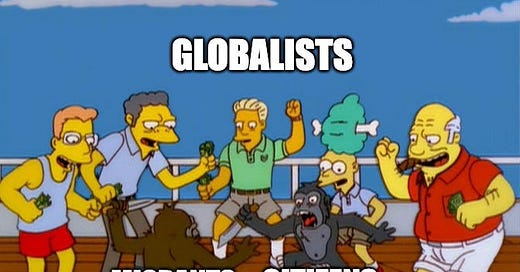



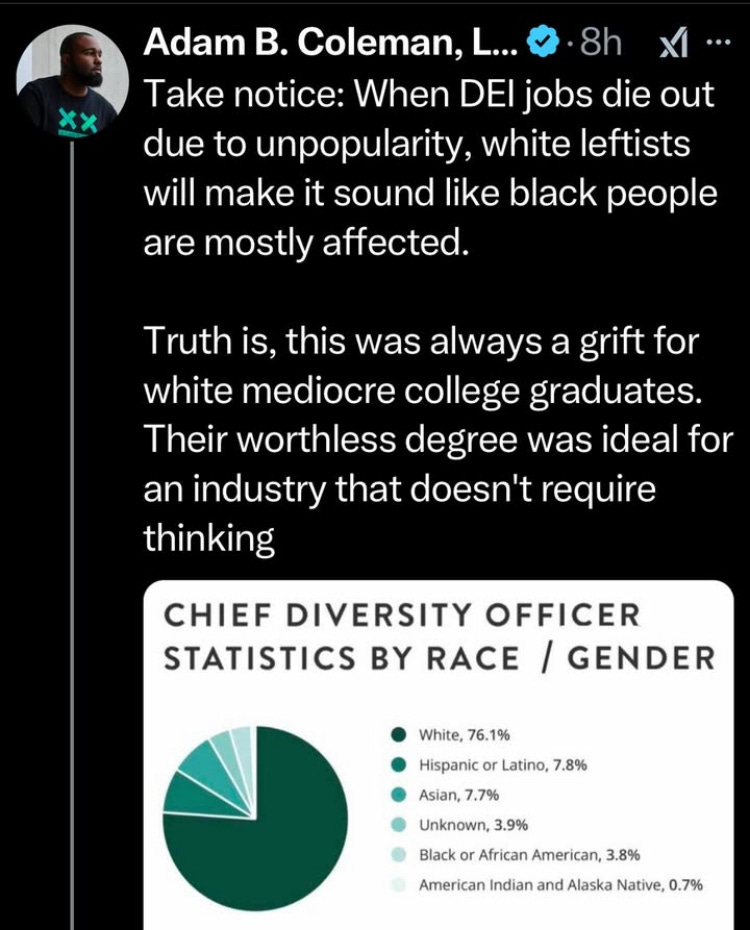
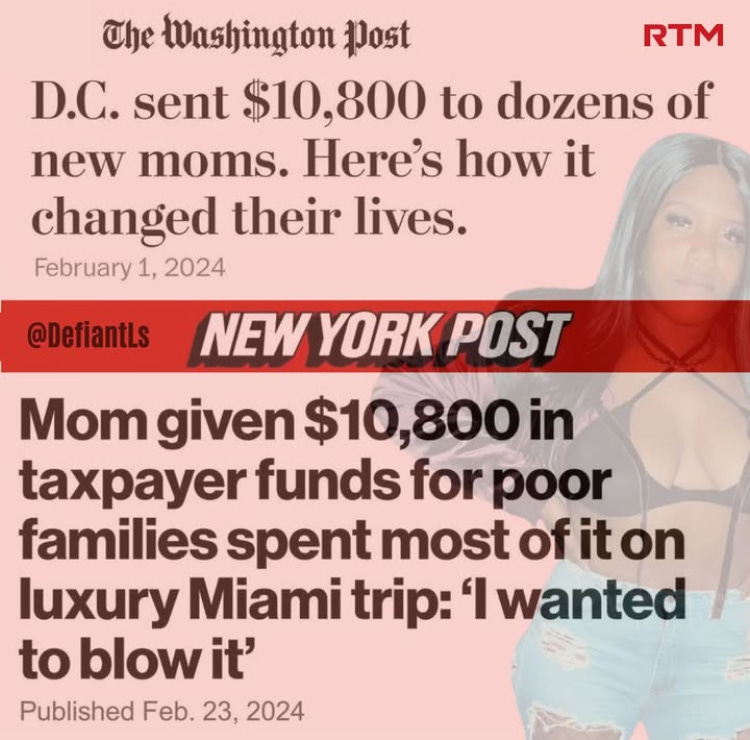
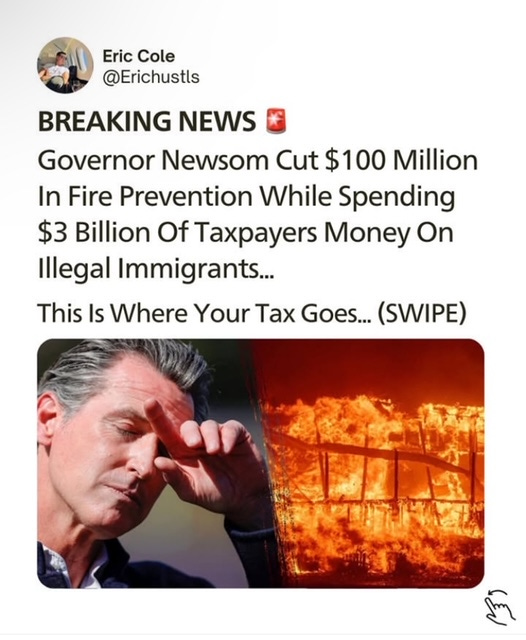
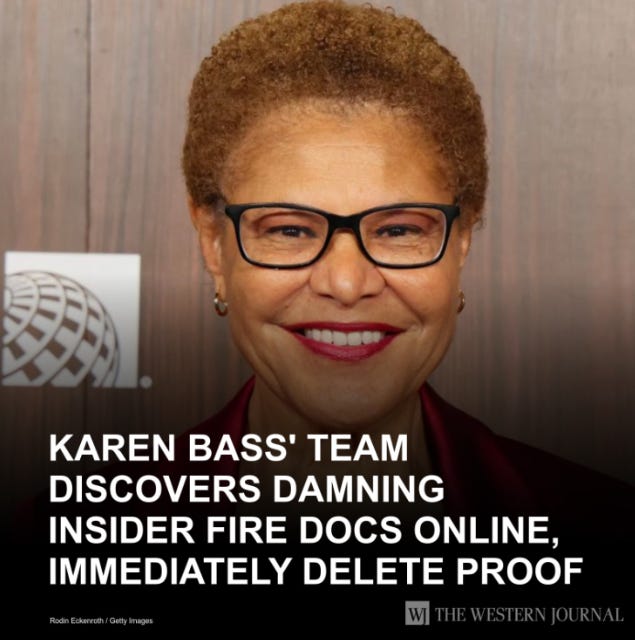
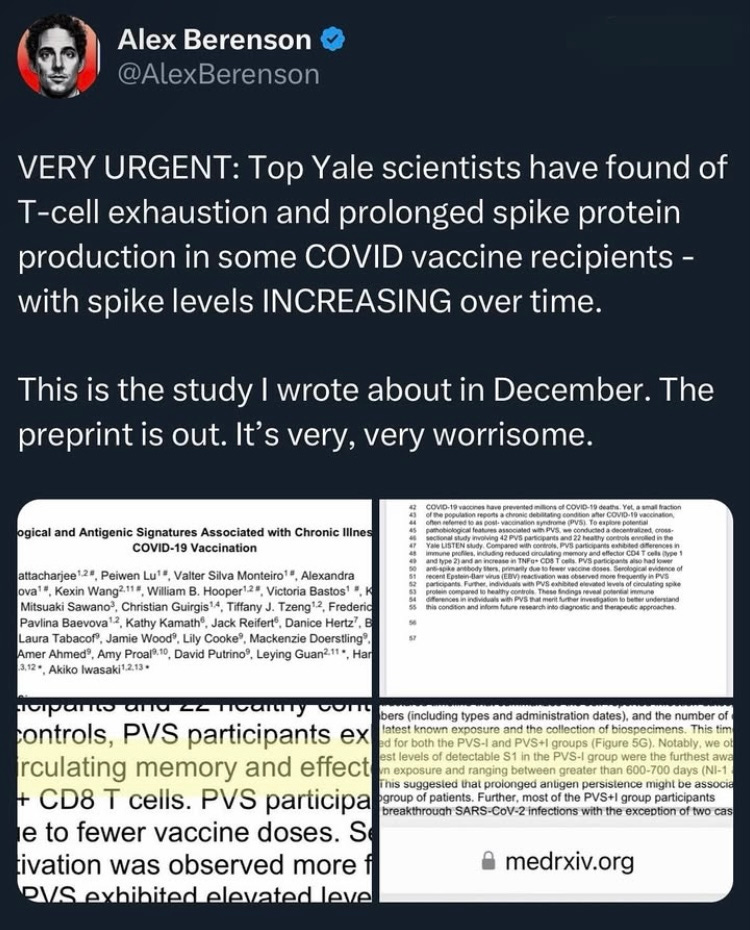
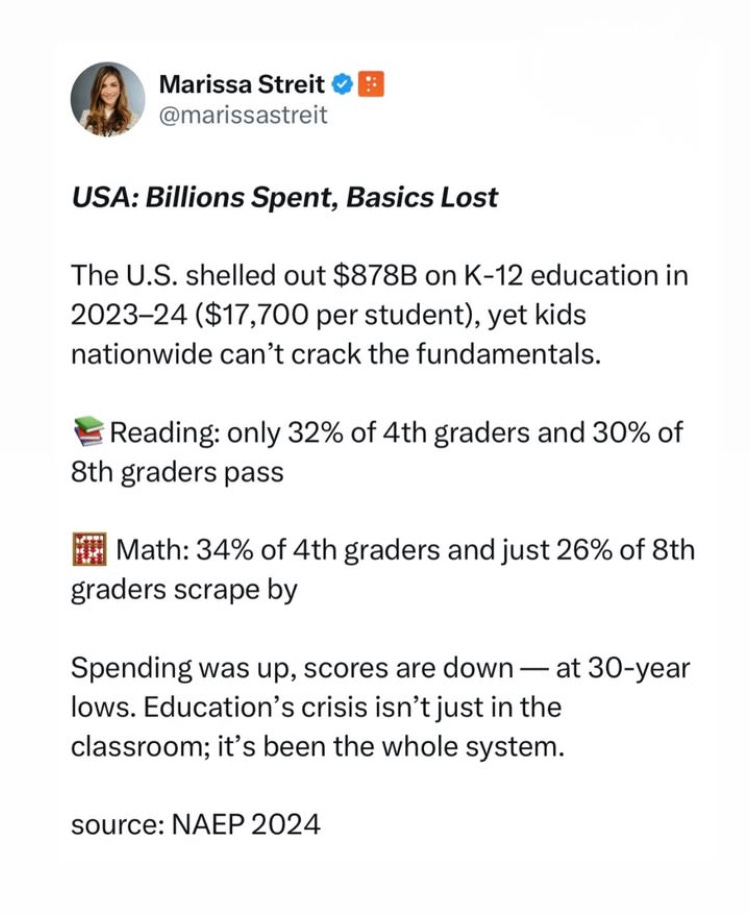
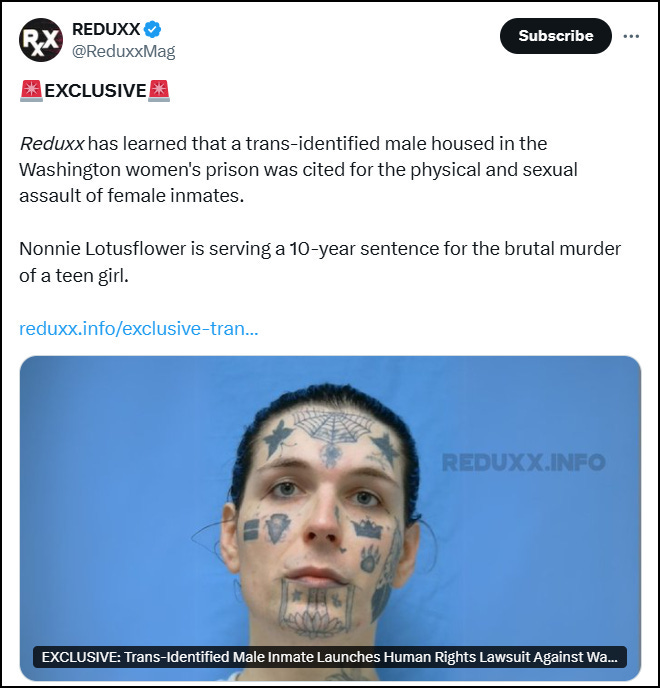
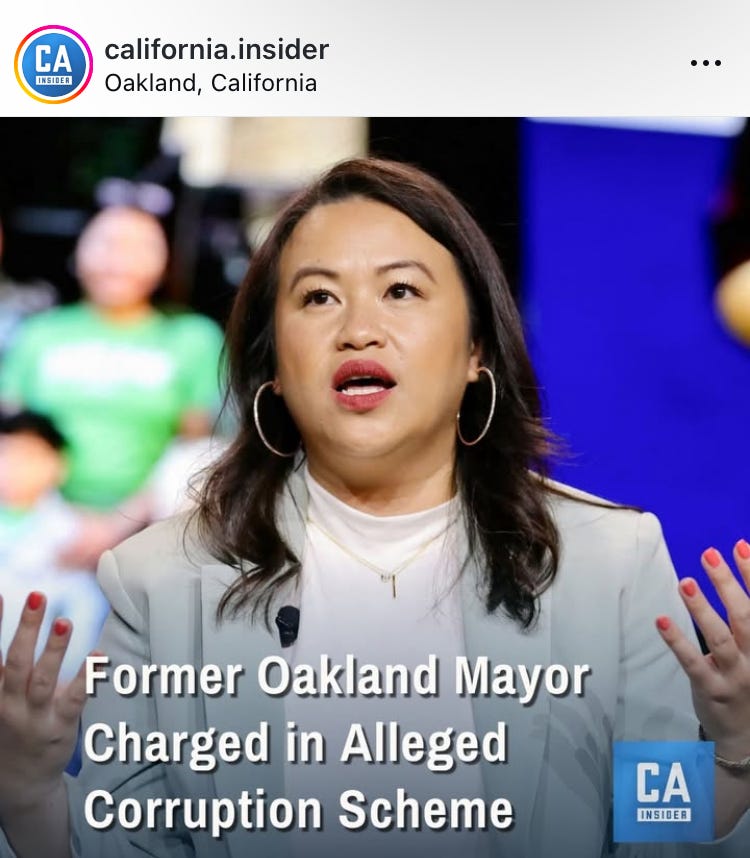


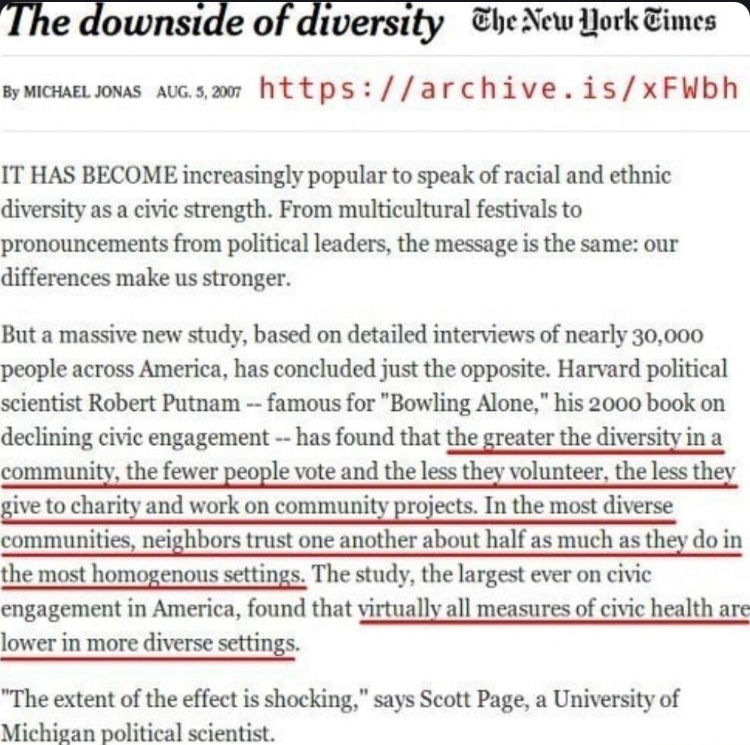


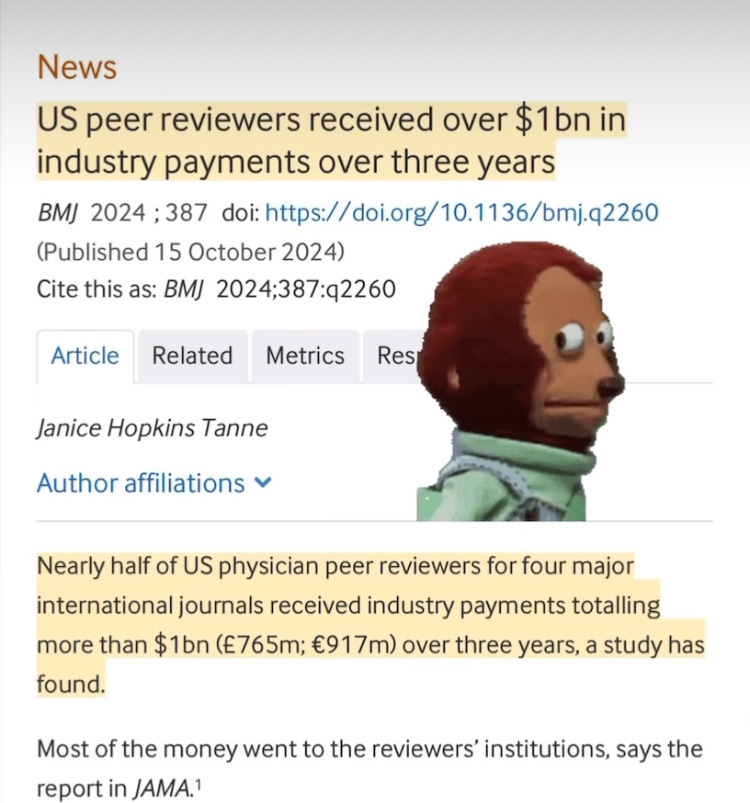

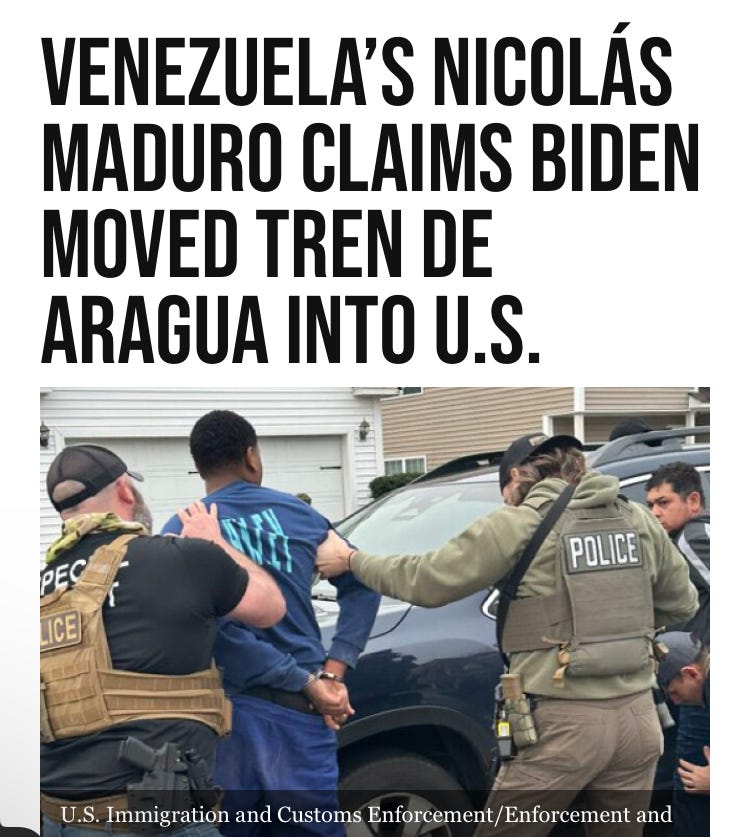
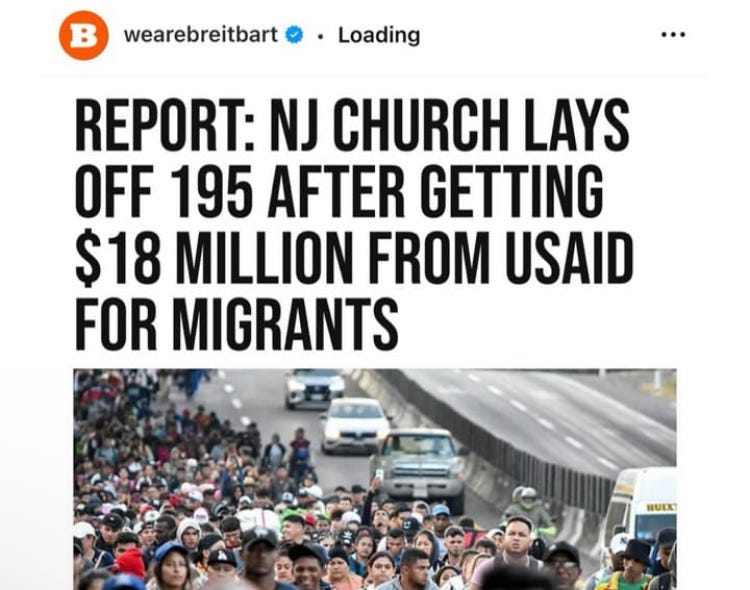
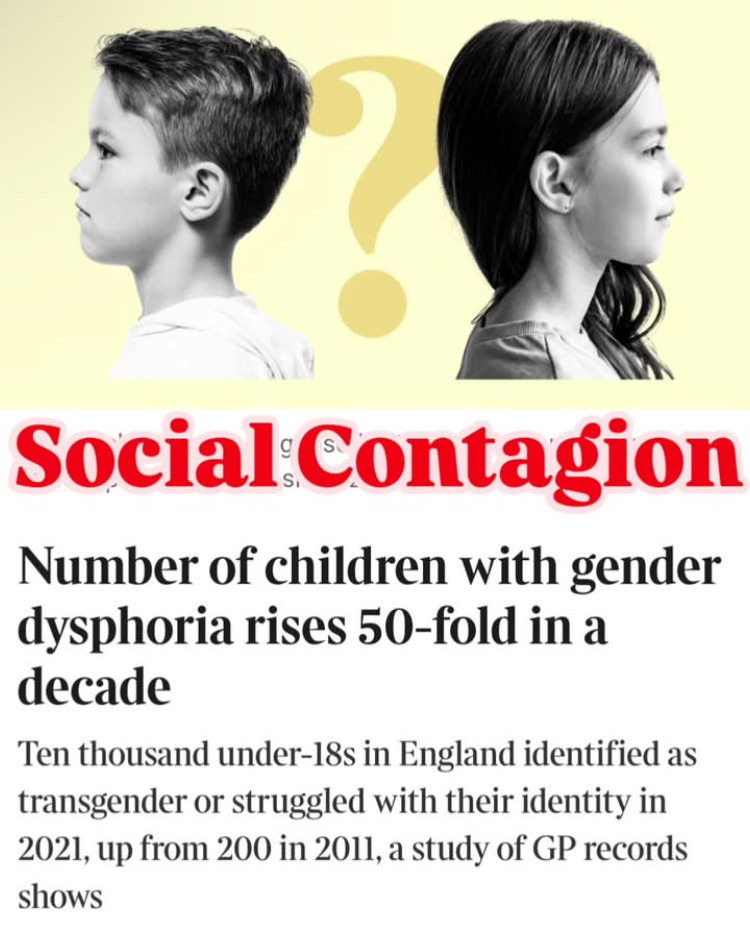
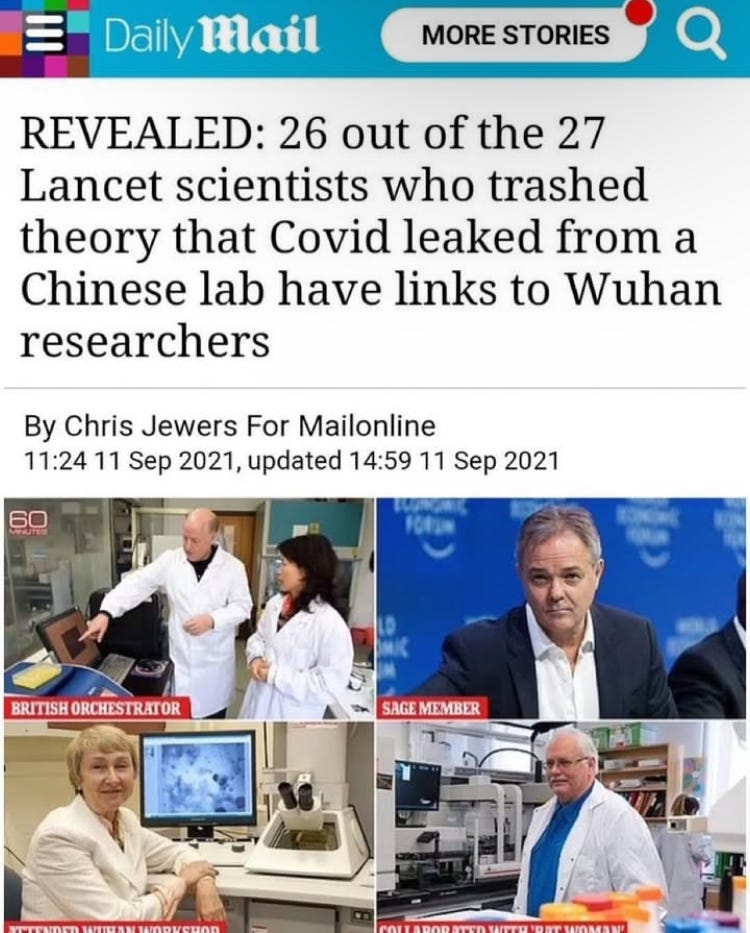

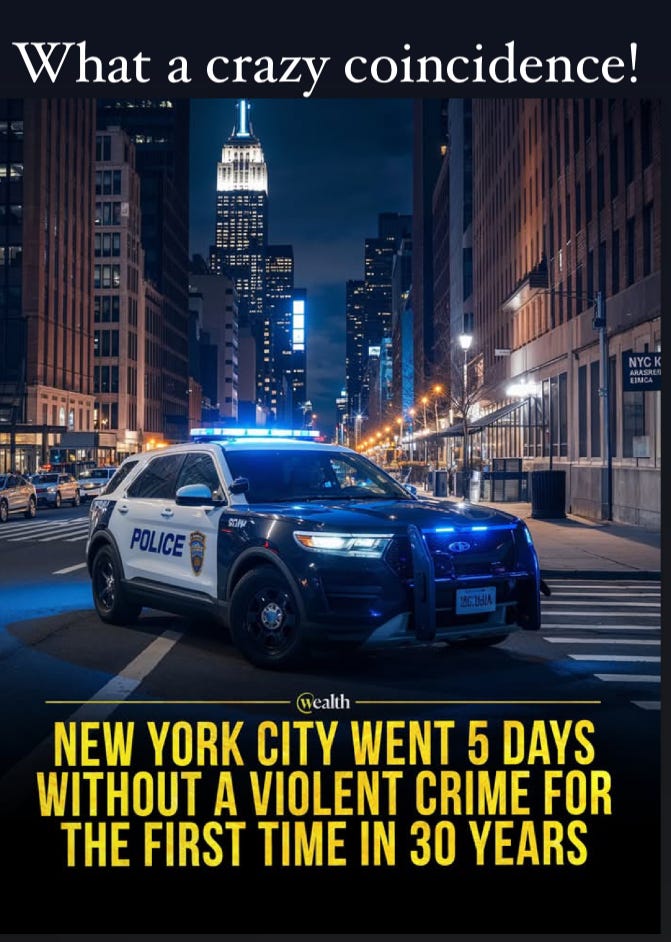
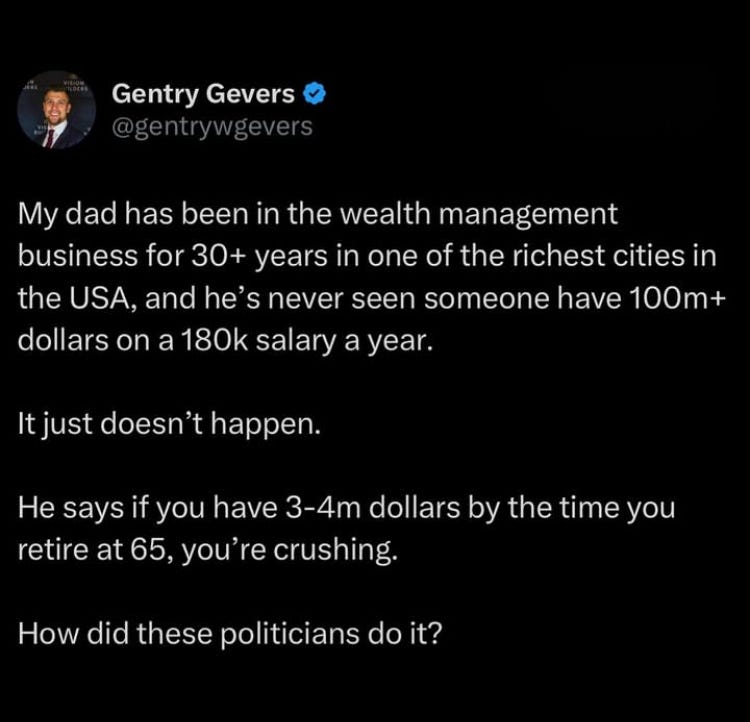
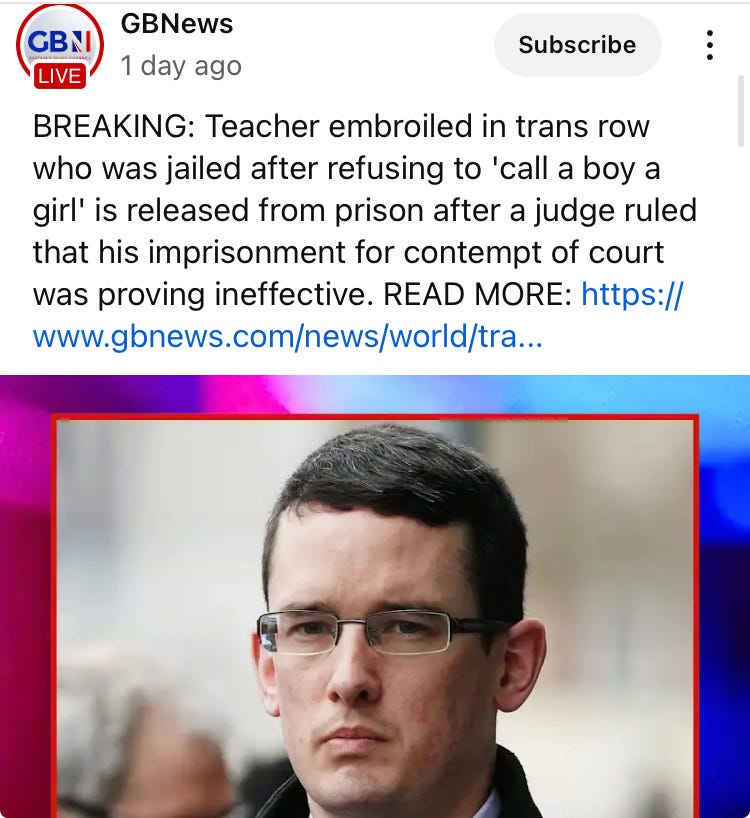
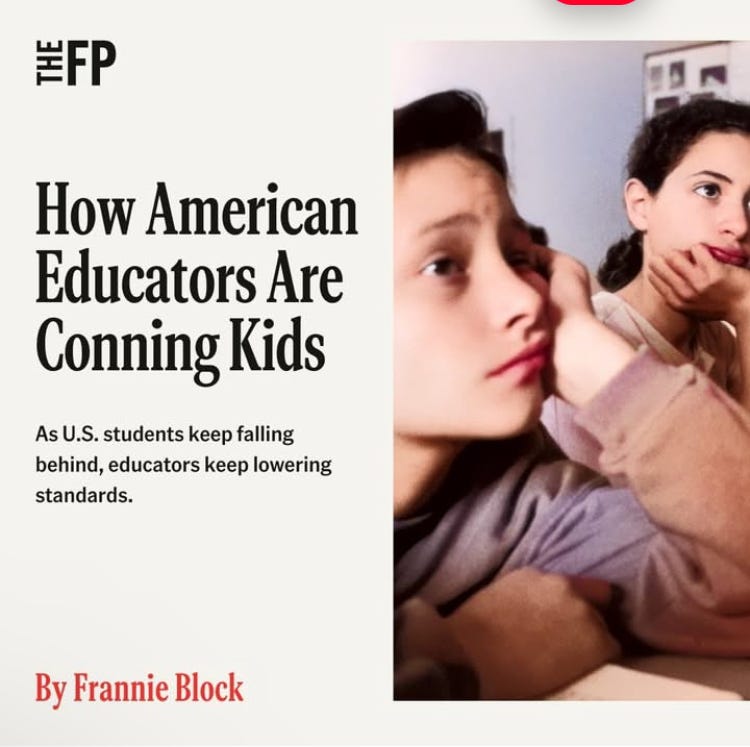
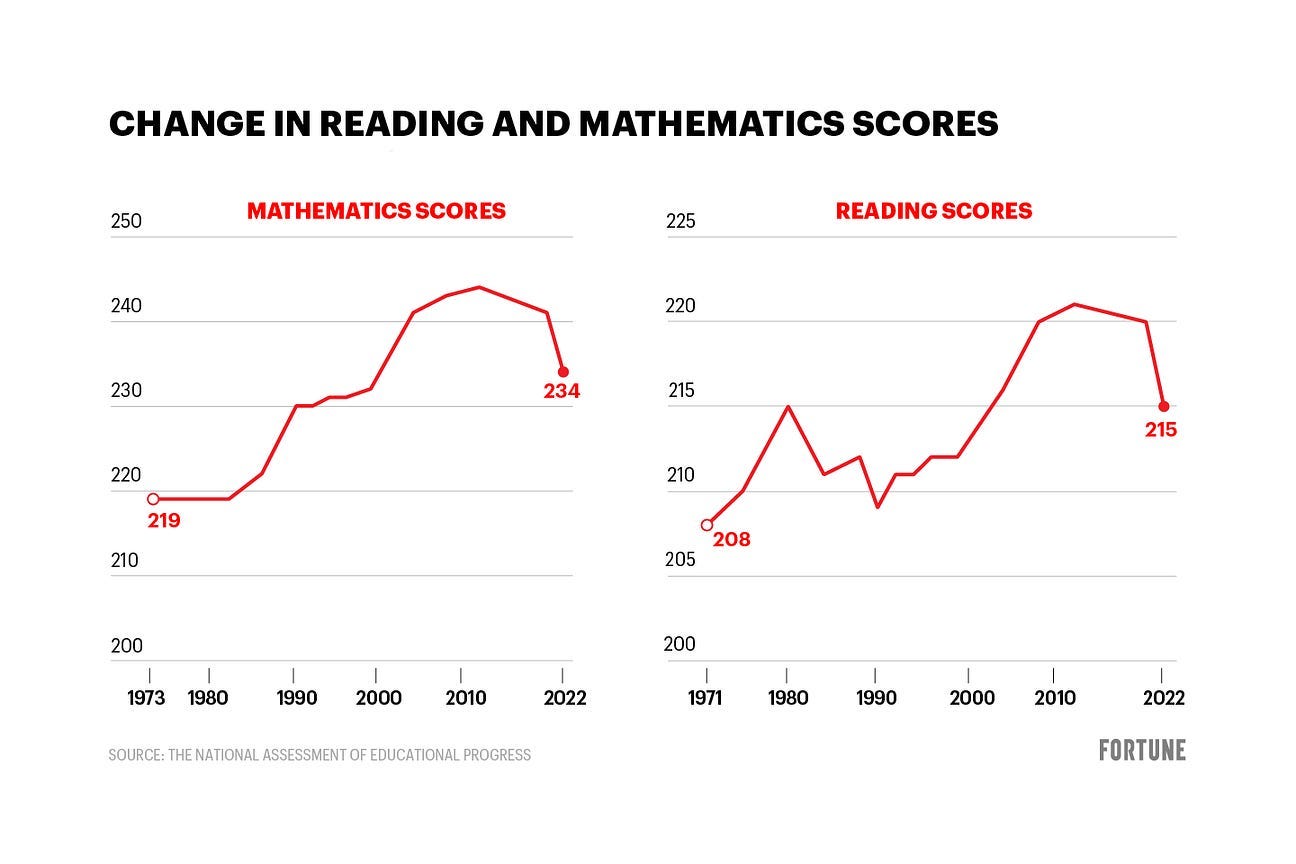
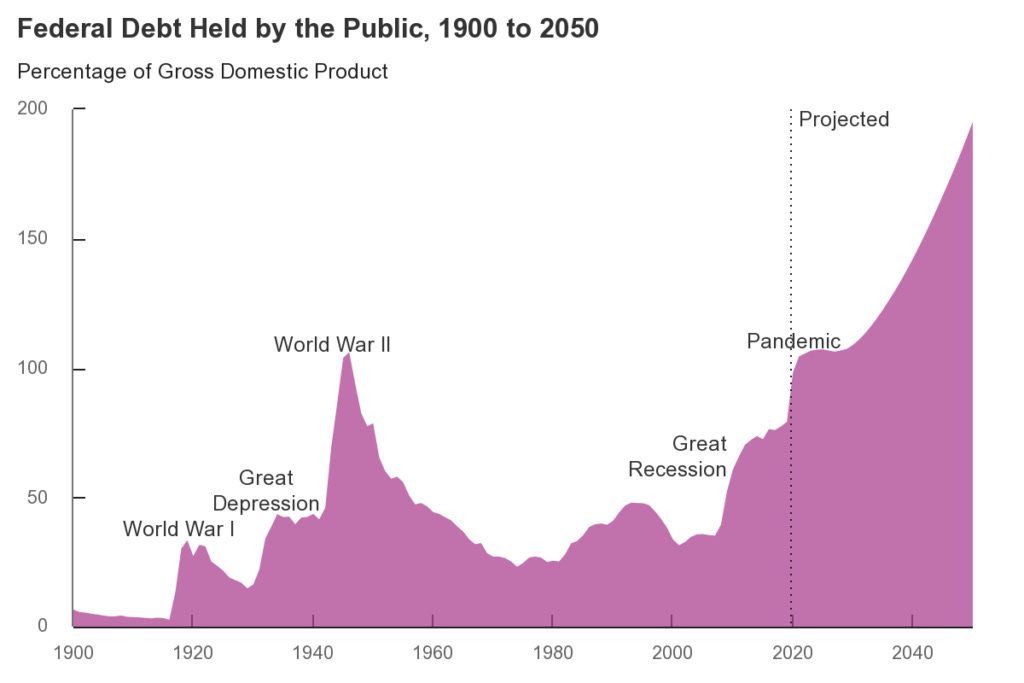
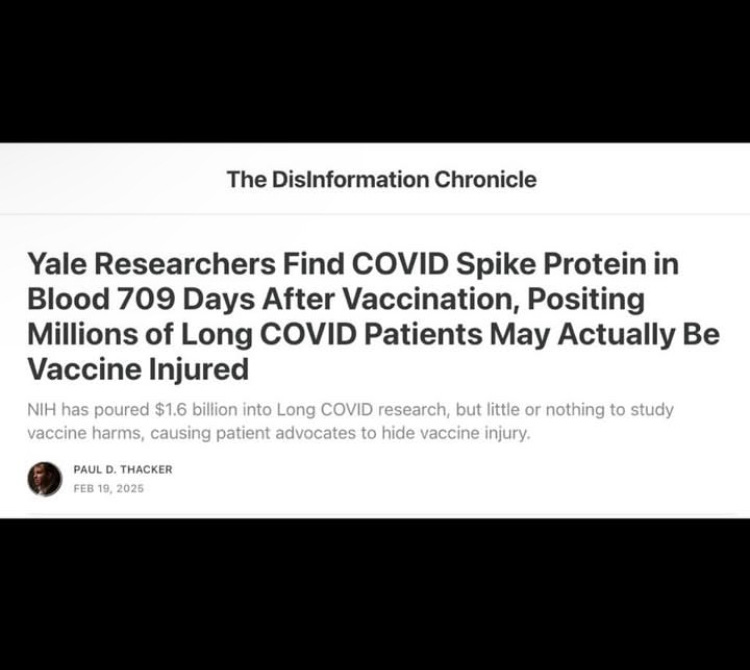
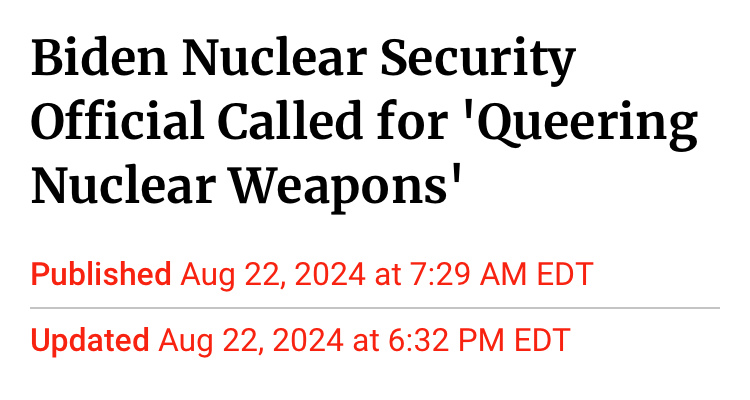

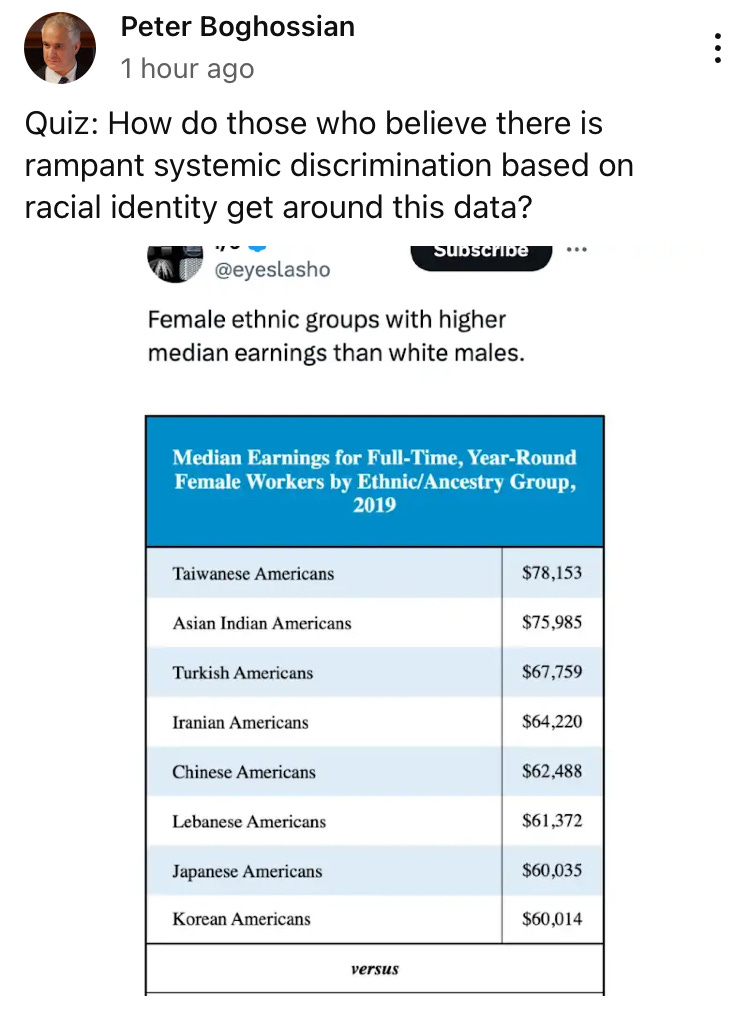
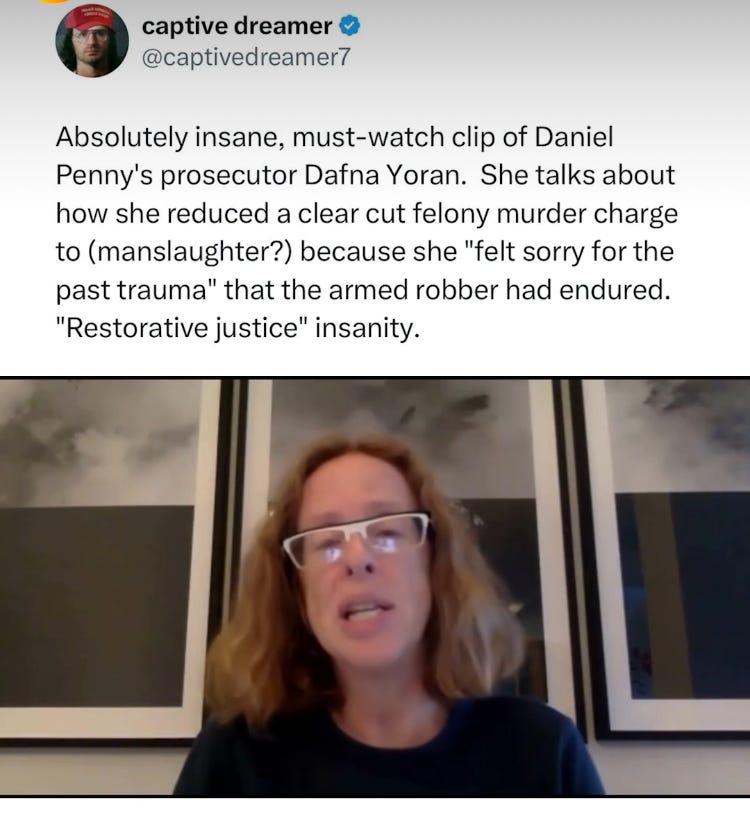
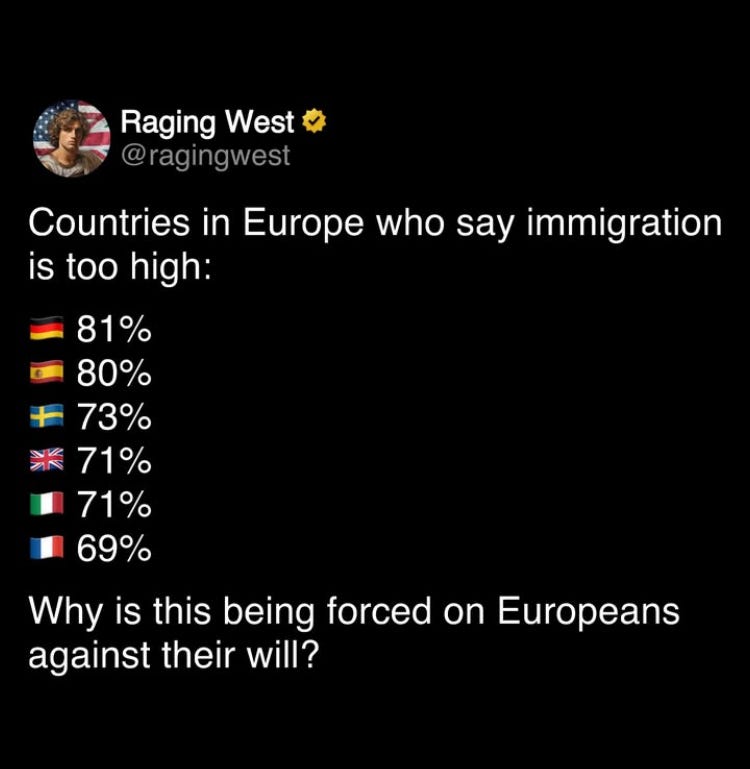
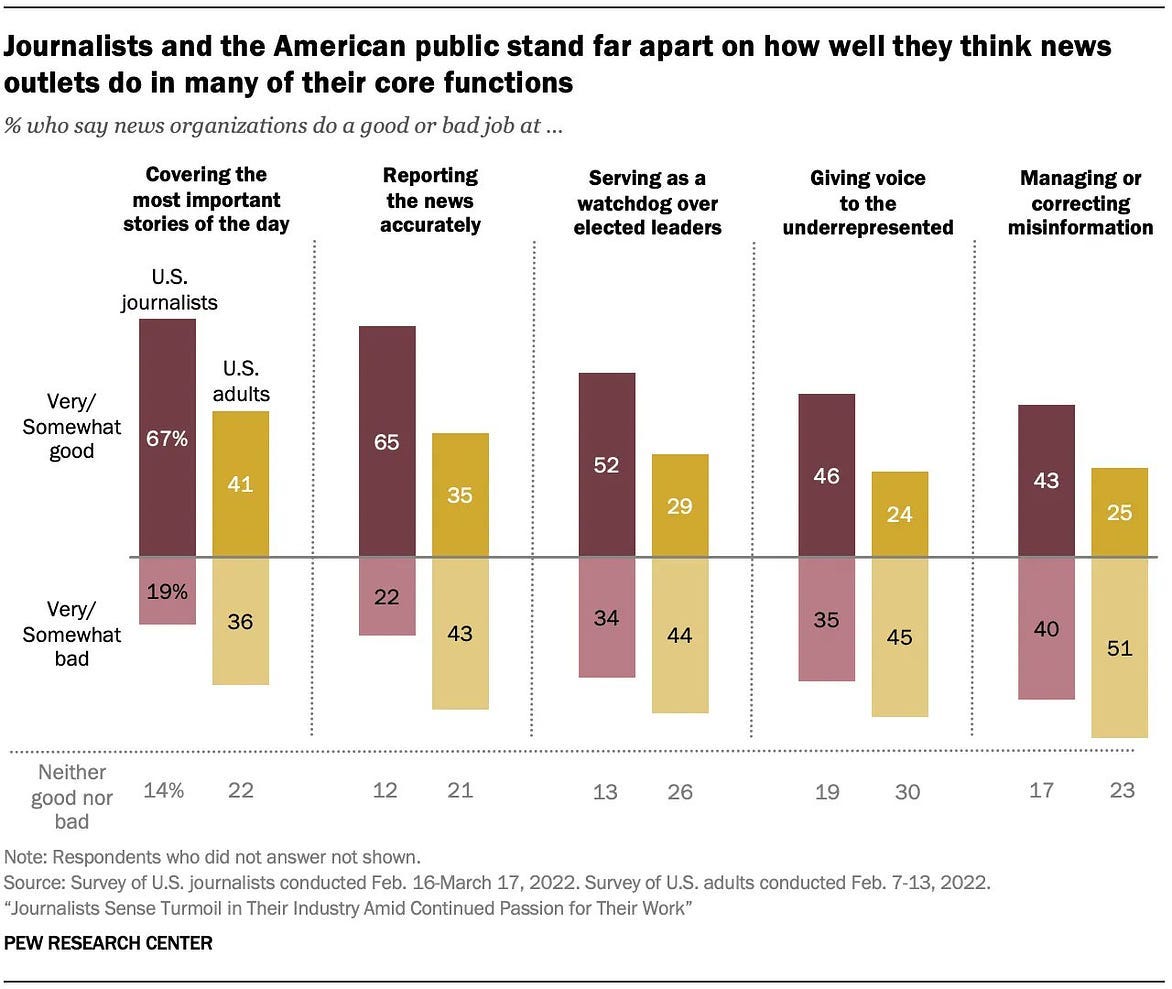
Let me start by saying I admire how you’ve woven together Lasch, Orwell, and Brzezinski to frame the erosion of institutional trust. You’re right: the “information distribution complex” has fractured, and its gatekeepers no longer hold a monopoly on narrative-building. That’s a tectonic shift worth dissecting.
I also share your skepticism of credentialism. The pandemic laid bare how “expertise” can be weaponized to stifle debate—remember the lab-leak taboo?—and your analogy to the Church’s lost epistemic authority resonates. When institutions conflate credentials with infallibility, they invite rebellion. That's what inspired rise of Substacks, citizen journalism (including my own), and heterodox researchers feels less like chaos and more like a necessary corrective. As you note, people crave unmediated voices: cops, nurses, soldiers. There’s humility in that.
That said, I’d gently push on one front. While the IDC’s failures are glaring, dismissing all expertise risks throwing out shared facts with the bureaucratic bathwater. For instance, the CDC’s missteps on myocarditis don’t negate virology’s core principles—they remind us to separate institutional bias from scientific method.
Your closing prediction—that discourse will grow ruder but freer—feels plausible. The question is: can we channel that chaos into something generative? You mention distributed knowledge networks. How do we nurture those without replicating the IDC’s tribal instincts? Is there a way to reward intellectual courage and rigor, or are we doomed to swing between dogma and anarchy?
However this plays out, your piece is a provocation to think harder about who gets to shape reality. Thanks for that. Even where I squirm, I’m glad you wrote it.